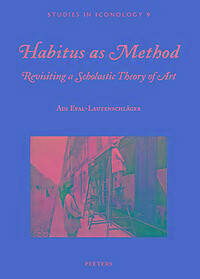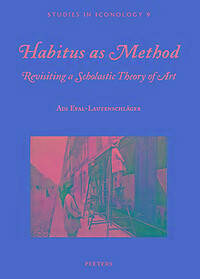
- Afhalen na 1 uur in een winkel met voorraad
- Gratis thuislevering in België vanaf € 30
- Ruim aanbod met 7 miljoen producten
- Afhalen na 1 uur in een winkel met voorraad
- Gratis thuislevering in België vanaf € 30
- Ruim aanbod met 7 miljoen producten
Zoeken
Omschrijving
Rather than being an event of an aesthetic, sublime or revelatory character, art can be rather understood simply as a habitual productive activity, taking an equal part in the design of quotidian reality as any other tool. The habitual approach to art carries with it several consequences regarding the understanding of the history of art and the theory of artistic production. This habitual approach has its origins in the Scholastic conception of the habitus of art, leaning on the Aristotelian definition of Poiesis. But the habitual approach had also its long history, passing through French Spiritualism in the 19th century, and several other stations in the 20th century. The essay follows Erwin Panofsky's concept of "mental habit" as a methodological instrument in the history of art. After exposing the principles of a habitual approach to the history of art, the essay continues to follow Panofsky's essay Gothic Architecture and Scholasticism, trying to trace what was Panofsky in fact conceiving under this term. In the conclusion, the essay suggests some guiding principles for conceiving of a habitus-oriented theory of art, energized by the scholastic approach to the habitus of art and by the methodology of habitus in science of history.
Specificaties
Betrokkenen
- Auteur(s):
- Uitgeverij:
Inhoud
- Aantal bladzijden:
- 115
- Taal:
- Engels
- Reeks:
- Reeksnummer:
- nr. 9
Eigenschappen
- Productcode (EAN):
- 9789042934788
- Verschijningsdatum:
- 31/12/2017
- Uitvoering:
- Paperback
- Formaat:
- Trade paperback (VS)
- Afmetingen:
- 170 mm x 239 mm
- Gewicht:
- 362 g

Alleen bij Standaard Boekhandel
+ 154 punten op je klantenkaart van Standaard Boekhandel
Beoordelingen
We publiceren alleen reviews die voldoen aan de voorwaarden voor reviews. Bekijk onze voorwaarden voor reviews.








